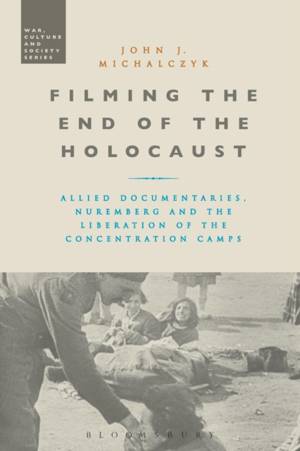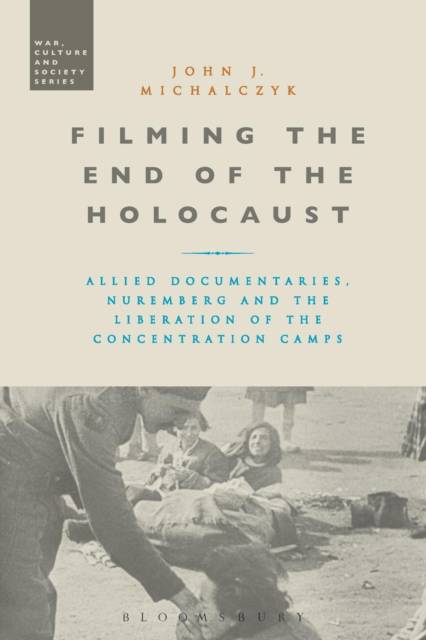
- Afhalen na 1 uur in een winkel met voorraad
- Gratis thuislevering in België vanaf € 30
- Ruim aanbod met 7 miljoen producten
- Afhalen na 1 uur in een winkel met voorraad
- Gratis thuislevering in België vanaf € 30
- Ruim aanbod met 7 miljoen producten
Zoeken
Filming the End of the Holocaust
Allied Documentaries, Nuremberg and the Liberation of the Concentration Camps
John J Michalczyk
€ 88,45
+ 176 punten
Omschrijving
Filming the End of the Holocaust considers how the US Government commissioned the US Signal Corps and other filmmakers to document the horrors of the concentration camps during the April-May 1945 liberation. The evidence of the Nazis' genocidal actions amassed in these films, some of them made by Hollywood luminaries such as John Ford and Billy Wilder, would go on to have a major impact at the Nuremberg Trials; they helped to indict Nazi officials as the judges witnessed scenes of torture, human experimentation and extermination of Jews and non-Jews in the gas chambers and crematoria. These films, some produced by the Soviets, were integral to the war crime trials that followed the Holocaust and the Second World War, and this book provides a thorough, close analysis of the footage in these films and their historical significance.
Using research carried out at the Museum of Jewish Heritage, the US National Archives and the film collection at the National Center for Jewish Film at Brandeis University, this book explores the rationale for filming the atrocities and their use in the subsequent trials of Nazi officials in greater detail than anything previously published. Including an extensive bibliography and filmography, Filming the End of the Holocaust is an important text for scholars and students of the Holocaust and its aftermath.
Using research carried out at the Museum of Jewish Heritage, the US National Archives and the film collection at the National Center for Jewish Film at Brandeis University, this book explores the rationale for filming the atrocities and their use in the subsequent trials of Nazi officials in greater detail than anything previously published. Including an extensive bibliography and filmography, Filming the End of the Holocaust is an important text for scholars and students of the Holocaust and its aftermath.
Specificaties
Betrokkenen
- Auteur(s):
- Uitgeverij:
Inhoud
- Aantal bladzijden:
- 240
- Taal:
- Engels
- Reeks:
Eigenschappen
- Productcode (EAN):
- 9781474282789
- Verschijningsdatum:
- 21/04/2016
- Uitvoering:
- Paperback
- Formaat:
- Trade paperback (VS)
- Afmetingen:
- 156 mm x 234 mm
- Gewicht:
- 344 g

Alleen bij Standaard Boekhandel
+ 176 punten op je klantenkaart van Standaard Boekhandel
Beoordelingen
We publiceren alleen reviews die voldoen aan de voorwaarden voor reviews. Bekijk onze voorwaarden voor reviews.








